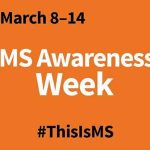A new study conducted in Argentina reveals that Multiple Sclerosis (MS) patients whose diet is rich in sodium are more likely to suffer from MS symptoms than patients with a low-sodium diet.
The study, which was published in the August issue of the Journal of Neurogology, Neurosurgery and Psychiatry, used two cohorts of 70 MS patients that have relapsing-remitting MS, the most common form of the disease. The researchers collected brain and spinal cord MRIs at the start of the study, after three months and then after six months. They continued to collect data from these patients regarding their sodium intake over the course of two years.
According to the lead author of this study, Mauricio Farez, MD of the Raúl Carrea Institute for Neurological Research, Buenos Aires, Argentina, there is possibly a positive correlation between sodium intake and the activity level of the MS disease. At the same time, the authors were careful not to draw any concrete or definitive conclusions based on this small observational study.
For purposes of analyzing the study results, researchers collected data on the levels of sodium, creatinine and Vitamin D in the blood stream as well as urine of the patients. While creatinine is an indicator of inflammatory activity in the body, lower than adequate levels of Vitamin D have also been associated with development of MS.
In order to understand the study results relative to the levels of sodium intake, patients’ sodium intake was divided into three levels: patients who take less than 2 grams of sodium daily, patients who take between 2 to 4.8 grams of sodium daily and patients who consume more than 4.8 grams of sodium every day. This Argentinean study found that patients in the second and third groups (that is consuming between 2 to 4.8 grams and more of sodium every day) were three to four times more likely to experience worsening MS symptoms compared to patients in the first group.
After these initial findings, the researchers went to replicate these results on another group of 52 MS patients with the same analysis. While Farez admitted that this study alone cannot direct MS patients to cut down on their sodium intake, researchers believe that there is some link between MS symptoms and salt intake. It is also not known how increasing salt intake can affect the progression of MS and its symptoms but it’s possible that salt intake may increase the vulnerability of the immune system to the disease.
In fact, many health care professionals agree that limited sodium in everyone’s diet is probably a good idea. Current health guidelines for preventing heart disease also recommend limiting sodium intake between 1.5 grams to 2.4 grams a day. Nevertheless, this study correlating daily sodium intake and progression of MS symptoms is not the final word on the subject. Farez suggested that this study can pave way for future clinical trials that can determine whether reducing salt intake can be helpful for MS patients in the long-run or not.







[…] Sugar intake should be kept to minimum because high sugar levels will lead to a flare up of your MS symptoms. Salt intake should also be kept in check as high salt intake can affect your MS. […]